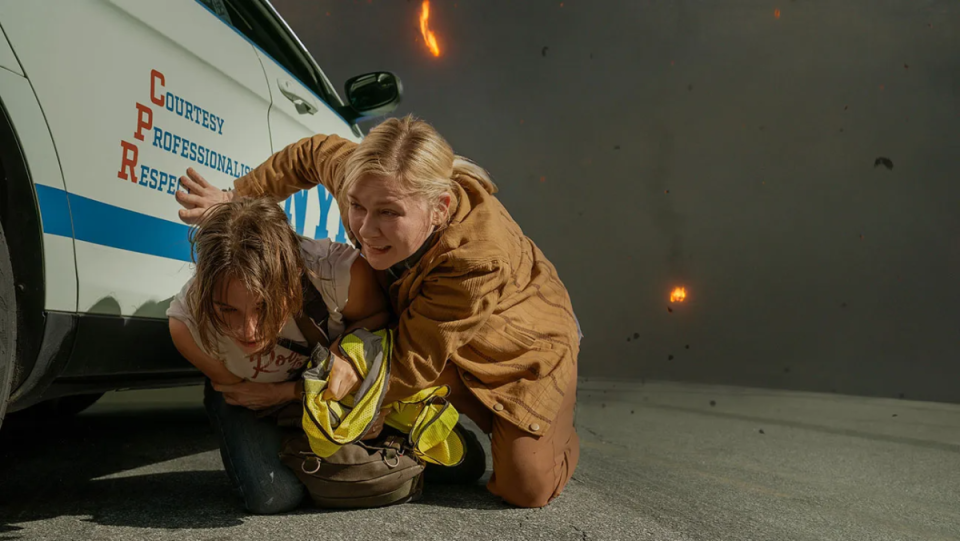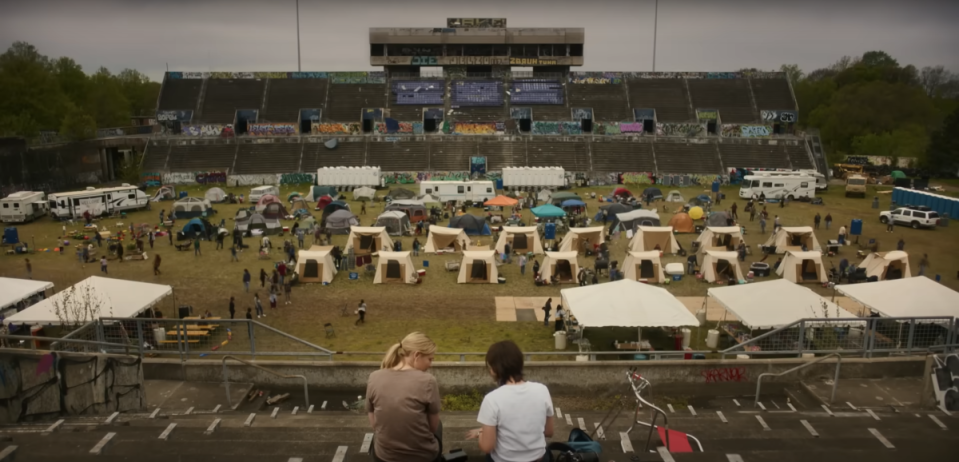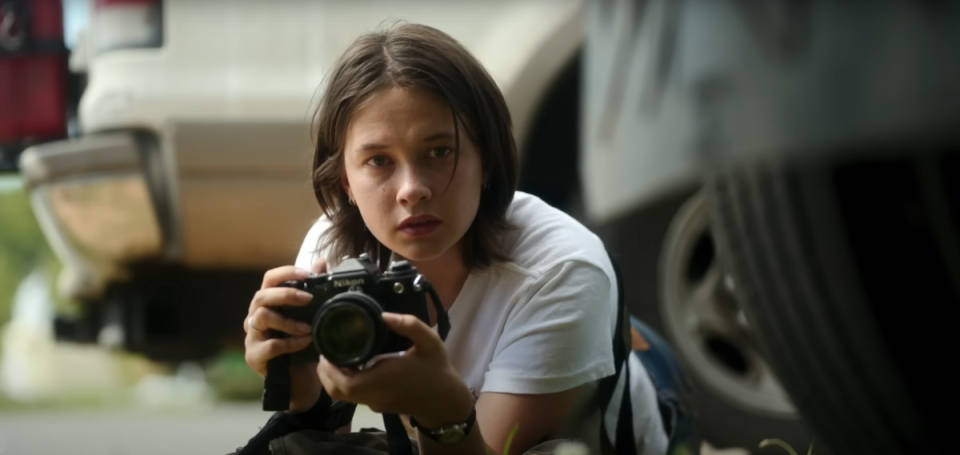Civil War Review: Ahead of Its Time and Years Too Late
- Oops!Something went wrong.Please try again later.
When Alex Garland stepped out to introduce Civil War at the London multimedia screening, he said, "I honestly don't know what to say. I really don't know how to set this film up".
That wasn't for lack of understanding what his motivations were for making the film. "I've been telling stories for 25 years. That is my preferred means of communication," Garland said. "I think that is more true with this film than anything else I've ever done.”
In 1976, Joan Didion said in her essay "Why I Write", "I write entirely to find out what I'm thinking, what I'm looking at, what I see and what it means. What I want and what I fear."
Civil War feels reminiscent of Didion's words.

A24
Intention is everything when making movies. When you write and direct something, you are not only offering audiences a few hours of entertainment, but you're giving them a chance to see the world through a specific lens, maybe one they have never looked through before.
Civil War plays like a road movie. It follows four journalists journeying through a war-torn North America in a race against the clock to reach DC before rebels descend upon the President.
Kirsten Dunst leads the pack as Lee, a photojournalist who has spent her career around the brutality of war. Joining her are Joel, Sammy and Jessie, played by Wagner Moura, Stephen McKinley Henderson and Cailee Spaeny, respectively.
Jessie is the youthful optimism infecting their years of wisdom (and cynicism) after years of reporting from the beating heart of devastation. She sneaks her way into their dangerous mission against the will of Lee, who knows better than to bring a wide-eyed 23-year-old along for the ride.
Jessie's motivation is her adoration for her heroes' work, idolizing the dazzling acclaim garnered from their impressive-on-paper careers. Civil War studies how young people look at success and accomplishment and boldly - or stupidly - push on in the face of adversity, hungry to prove themselves as worthy of playing in the big leagues before they have even tasted what it takes to be there.
Lee, Joel, and Sammy plough on with what they know despite their homeland crumbling around them. It is the only way they know how to make sense of what is happening. It is how they cope.

A24
In an age where documentation and witnessing are everything, Civil War speaks to our relationship with this type of media and how it impacts our interpersonal relationships.
Throughout the film, Garland is having a conversation on ethics, commenting on aesthetics, apathy and intention through the relationship each journalist has with their preferred means of communication.
The adage "the camera is a gun" is at the forefront. Lee weaponizes her technology to intimidate while simultaneously using it to understand, explore, play and unravel the chaos around her. Her world may be in physical tatters, but Lee captures the lingering memorabilia of normality in juxtaposition to the annihilation of the landscape.
As a director, Garland is doing this through what he chooses to show his audience. The imagery he captures would once evoke shock or discomfort, but - in a world so dialled into injustice - it is almost guaranteed that any audience will hardly muster a flinch at what they see.

A24
Which raises the question: what is the point of Civil War?
Even its title is unassuming. It doesn't tell you how to think or feel. It simply states what is happening. Garland is doing the same. He is just starkly depicting our real world as it is, albeit to its ultimate extreme.
The more compelling narrative is beneath all the fanfare of its gruesome images and excessive sound design. Before it sinks into the war, it has some necessary things to say about how apathy is killing our humanity and how we must be mindful of what we are digitally consuming and how it is killing what makes us human.
A smarter, more poignant version of Civil War exists somewhere deep inside the chaos.
However, audience responses to recent films like The Zone of Interest suggest that perhaps we are not yet ready to see our more insidious traits reflected back to us on screen anyway.
The crazed early reactions from people proving the film's point right on social media call Civil War "a modern masterpiece". It is actually just a film that people will look back on a century from now (should we be so fortunate that movies aren't outlawed) as a bleak, hammering reminder that history always repeats.
It is equal parts ahead of its time and years too late. It reflects the type of warning movies were trying to make pre-2016 when hope didn't feel foolish. Now, all Garland's film does is remind us that we're descending into a deep, dark pit of no return.
And at the bottom of that pit is everyone having an opinion while missing the point entirely.

